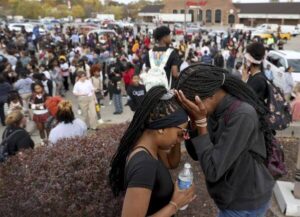
Sports fandom is an enduring phenomenon that fosters loyalty, passion, and unwavering support. The chant “Go Steelers!” epitomizes the spirit of dedicated fans who believe in their team despite challenges and obstacles. This paper explores the psychology behind team allegiance, the role of optimism in sports culture, and how a collective belief in a team’s success contributes to morale and performance.
Sports teams, particularly in professional leagues such as the NFL, experience cycles of triumph and adversity. Yet, devoted fanbases, like those of the Pittsburgh Steelers, maintain faith in their teams regardless of outcomes. This phenomenon is rooted in emotional investment, social identity theory, and cognitive biases that reinforce continued support. Studies in sports psychology suggest that fans derive self-esteem and social belonging from their team’s success, leading to strong emotional connections. The concept of “basking in reflected glory” (BIRG) explains how fans feel personally validated by their team’s victories, while “cutting off reflected failure” (CORF) allows them to rationalize losses without diminishing their support.
Furthermore, optimism in sports fandom plays a crucial role in maintaining morale within a community. The phrase “If you still believe in me and my teammates, say ‘Go Steelers!'” serves as a rallying cry that unites players and fans alike. It fosters a sense of collective resilience, reinforcing the idea that belief itself can influence outcomes. While statistical analyses indicate that fan enthusiasm does not directly impact game performance, psychological studies suggest that strong community support can boost player confidence, potentially improving performance on the field.
The impact of team allegiance extends beyond the sport itself, influencing social interactions and cultural identity. For many fans, supporting the Steelers is not merely about wins and losses but represents a shared history, family traditions, and civic pride. Pittsburgh, known for its blue-collar work ethic, finds its values reflected in the resilience and determination of its football team. This connection between team and city strengthens the communal spirit and deepens emotional bonds.
Ultimately, the continued belief in a team like the Steelers is not just about sports; it is about maintaining faith in perseverance, unity, and shared goals. Regardless of standings or statistics, the act of chanting “Go Steelers!” signifies hope, dedication, and an unwavering commitment to the team. This study highlights the psychological, social, and cultural dimensions of sports fandom, emphasizing the profound impact of belief and loyalty in shaping the experience of both athletes and supporters.





